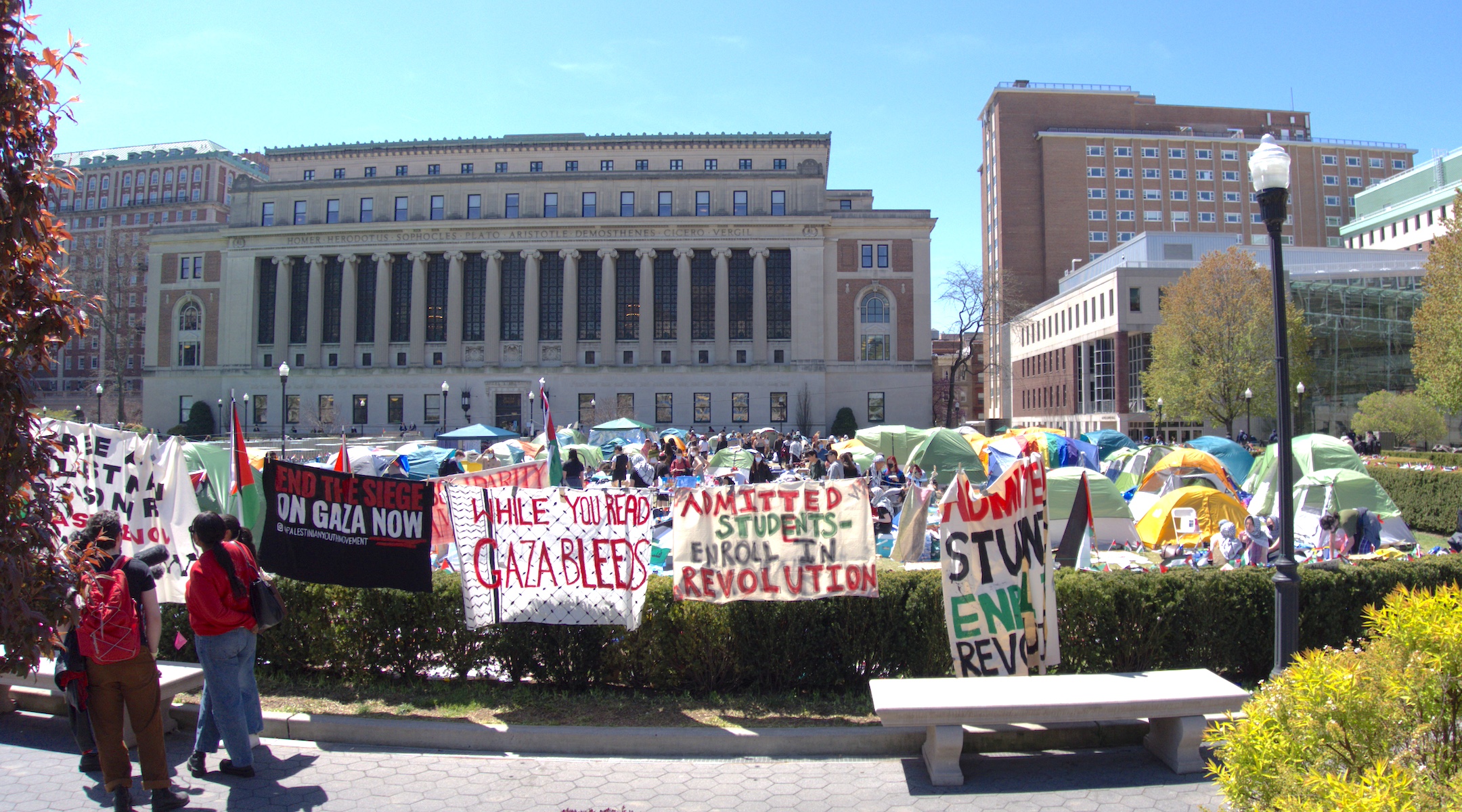Government reviewing visas of pro-Palestinian protesters who occupied Columbia library, after about 75 arrests
Columbia University Apartheid Divest organized the protest

The pro-Palestinian encampment on the lawn in front of Columbia University’s Butler Library in April 2024. Protesters took over a reading room in the library Wednesday. Photo by ProudFarmerScholar, CC0, via Wikimedia Commons
Secretary of State Marco Rubio announced late Wednesday that the government is reviewing the visa statuses of people who took over Columbia University’s Butler Library earlier in the day, temporarily shutting it down in the run-up to finals.
Police removed and arrested about 75 people as a result of the protest, organized by a pro-Palestinian student group. After the arrests, more than 100 protesters picketed the area around Columbia’s campus, leading to altercations with police, according to the student-run Columbia Spectator.
Earlier in the day, eyewitnesses said about 100 people filled a reading room inside Butler, where they chanted, banged on drums and hung banners that read “Strike for Gaza,” “Liberated Zone” and “Free Mahmoud,” referring to Mahmoud Khalil, a recent Columbia graduate in ICE detention. Khalil is one of hundreds of students whose visas have been revoked as a result of their participation in pro-Palestinian protests or support of Palestinian rights, which the administration considers part of its fight against antisemitism on campus.
Video posted to social media showed the protesters on Wednesday afternoon streaming past campus security, most of them masked and wearing dark-colored clothing, though the Spectator reported that security guards pushed several protesters to the ground.
But after a Columbia public safety employee told protesters they would be required to show student identification in order to leave the library, the protesters refused to comply — and campus security kept them inside even after a fire alarm went off.
Claire Shipman, Columbia’s acting president, said two Public Safety officers were injured when a crowd surged toward the reading room to try to free the protesters.
“Requesting the presence of the NYPD is not the outcome we wanted, but it was absolutely necessary to secure the safety of our community,” Shipman wrote in a statement.
The campus group that organized the protest, Columbia University Apartheid Divest, billed the action as the launch of “Basel Al-Araj Popular University.” Basel Al-Araj was a Palestinian writer and activist who was killed by Israeli police near Bethlehem in 2017.
The protest comes as the university seeks to show the White House it is addressing antisemitism on its campus. The school has laid off at least 180 people due to about $400 million in federal funding cuts and is currently weighing a consent decree, a form of government oversight that would allow a judge to monitor the school’s compliance.















